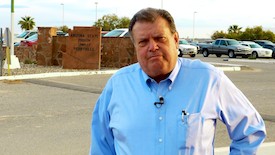Interview with Paul Huebl, former Chicago Police Officer
We recently had the immense opportunity to interview Paul Huebl, a former Chicago police officer, and the author of Crime, Guns and Videotape and the Paul Huebl Investigation blog. In this interview we discuss Paul’s career path, he shares his perspectives on police work, and helps us ask a question we may not have thought to bring to fore. We wish to thank Paul for the generosity of his boundless experience.
What event or series of events led you to pursue the role of police officer as your professional choice? Please elaborate.
 A dysfunctional single mother in abject poverty raised me. My choices were limited and being policemen seemed an honorable way to proceed into adulthood and respectability.
A dysfunctional single mother in abject poverty raised me. My choices were limited and being policemen seemed an honorable way to proceed into adulthood and respectability.
Name 1 or 2 guidelines you would offer the police officer just entering the field?
Remember that you’re working for the government and they don’t always get it right. You have to learn to have a thick skin and roll with the punches.
Can you give us an example of an interesting case or project that you have worked on and your role in helping to achieve a positive outcome?
I had an assignment at the Cook County Morgue for a couple of years and watched nearly 800 autopsies. This gave incredible insight to homicide cases. I was the second officer on the scene of the crash of American Airlines Flight 191 crash that took 273 souls. I bagged charred bodies for the next 12 hours.
Mentoring the youngsters that look up to cops to look beyond law enforcement to filling the roles of physicians, lawyers and engineers. Teaching the youngsters that crime leads to a life of poverty and pain.
As a law enforcement officer, what role do you see social media playing in the profession and the pursuit of offenders in the world of criminal justice today?
The Social Media is a great way for law enforcement to locate fugitives or witnesses to crime.
In your opinion, what are the most important technological advances that have taken place in law enforcement in the past 5-10 years and how do these advances impact your profession?
DNA and Surveillance video has exonerated thousands of people that would have otherwise faced wrongful arrest, prosecution, conviction and every form of punishment. The same technology has brought justice to the guilty as well.
As a police officer, what do you see as your most important strength and how does this strength show itself in your work?
Real strength can only be achieved if you have the respect of the citizens you serve. Having weapons and might is a façade. Be firm but fair as you deal with the citizens you serve. They are your masters.
What is a question that we should have asked?
How are the millions of cell phone cameras in the hands of citizens affecting police work? The police are learning that those cameras do more to clear them of impropriety than implicate them. Cops always need to behave like they are on camera because they are.
We thank Paul Huebl for sharing his experiences and insights with our readers.
